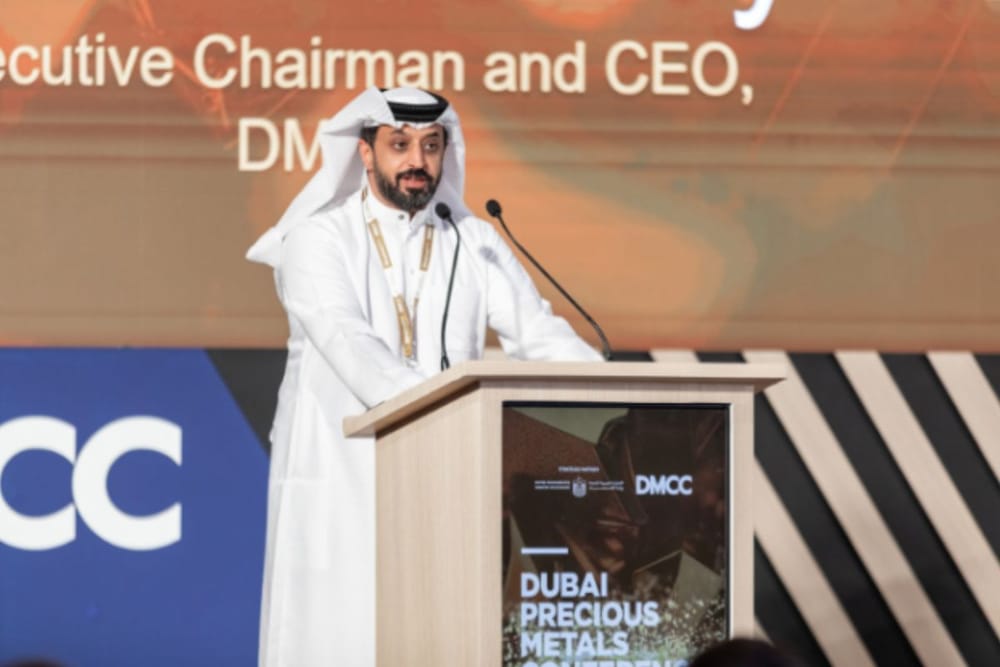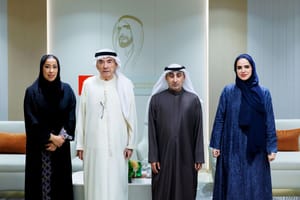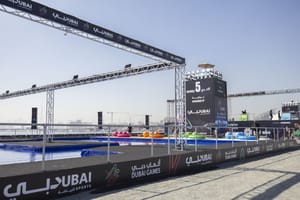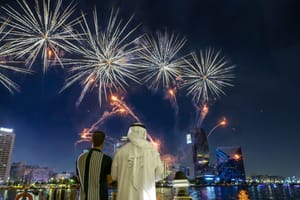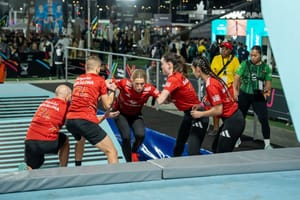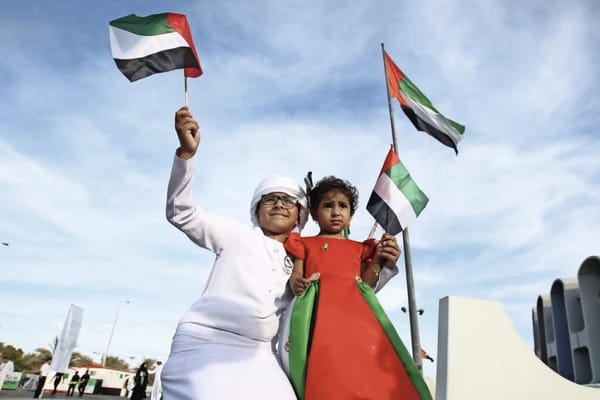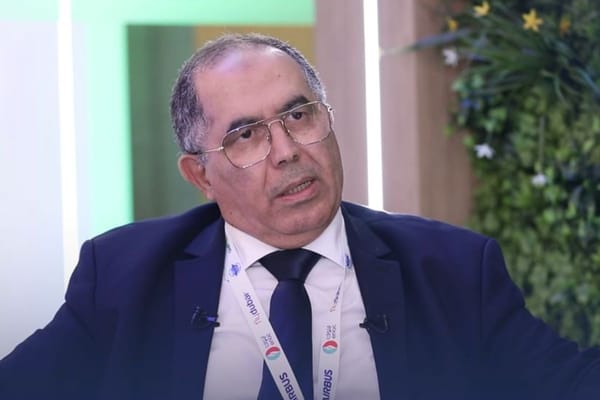DMCC - the world’s flagship free zone and Government of Dubai Authority on commodities trade and enterprise – has concluded the 11th edition of the Dubai Precious Metals Conference (DPMC). The event was held in partnership with the UAE Ministry of Economy.
Held under the theme of “The Future of Precious Metals: Global governance to trade trends”, the event sought to identify the opportunities and mitigate any risks and challenges in the dynamic precious metals landscape. The event saw a range of industry experts tackle critical industry topics including “Governance and Responsible Sourcing”, “Global Trade and the Geopolitical Landscape of Gold”, “Market Trends” and “Climate Change”.
Conversations around supporting responsible sourcing practices globally were of a particular focus, with the Ministry of Economy’s UAE Good Delivery Standard playing a key role in enhancing this across the UAE – one of the world’s largest physical gold trade hubs. Discussions concluded that the continued shift towards the tokenisation of precious metals will both democratise them and increase transparency and traceability.
During his special address, His Excellency Dr Thani bin Ahmed Al Zeyoudi, UAE Minister of State for Foreign Trade, said:
“The precious metals sector is one of the most important parts of the UAE’s non-oil economy, with gold representing a quarter of the UAE’s AED 1.24 trillion non-oil trade in the first half of the year. The UAE has established itself as a critical link to every gold market across the world. This reflects our collaborations with DMCC at home and abroad, which are ensuring the UAE remains a key focal point for the global precious metals trade.”
Hundreds of delegates from across the precious metals supply chain met with senior figures from industry bodies, traders, exchanges, refineries, tech companies, and regulators, including the World Gold Council, the UAE Ministry of Economy, London Bullion Market Association (LBMA), Organisation for Economic Co-operation and Development (OECD), the UN Group of Experts, CME Group, Botim, Sam Precious Refinery, and Istanbul Gold Refinery.
Ahmed Bin Sulayem, Executive Chairman and Chief Executive Officer, DMCC:
“This year’s Dubai Precious Metals Conference comes as stakeholders across the value chain are navigating an increasingly complex economic landscape. We are seeing the highest pace of buying in decades and can expect another colossal year in 2024 with central banks continuing to stock up record gold reserves amid ongoing volatility, inflation and de-dollarisation. DMCC has yet again provided one of the best platforms for the world’s precious metals experts to explore the most significant issues affecting the markets. It is imperative that we use the DPMC and the momentum achieved this week to advance multiple avenues, especially responsible sourcing, governance and technological adoption, and chart a path towards collective growth for industry.”
The keynote speech was delivered by the New York Times bestselling author and expert on trade and precious metals Jim Rickards, covering the expansion of BRICS and its impact on the global economy and precious metals markets. He said:
“The BRICS 11 is an important group from both a macroeconomic perspective and for commodities trade as well. They represent six of the 12 largest oil producers, creating a new group to rival OPEC, and they also account for 15% of the world’s gold reserves and a significant amount of gold held by central banks. De-dollarisation is underway through the introduction of a gold-backed BRICS currency, which will allow its members to trade freely without the dollar. In doing so, the BRICS 11 are betting the US dollar will not hold its value in gold.”
The first panel centred on discussions around new responsible sourcing and mining frameworks, touching on the role of technology in mining and investments in social development in activating these frameworks.
The second discussion delved into the shifting trade landscape for precious metals, with trade flows shifting east through the expansion of BRICS and a suite of bilateral trade agreements including the UAE’s CEPAs with key markets such as India. The conversation then moved on to how the physical trade of precious metals may shift towards settlements in other commodities or non-dollar currencies.
DPMC 2023’s final panel focused on market trends, including financing challenges and opportunities, as well as how the tokenisation of precious metals will democratise trade and help unlock wealth in mining countries across Africa. Key points were raised on whether these tokens should be managed and certified by trusted third parties or whether incumbent governments should lead efforts in this space.
Reflecting their commitment to facilitating industry advancement in the field of responsible sourcing, DMCC and the World Gold Council announced a strategic initiative on the sidelines of DPMC. The collaboration will seek to strengthen and standardise international regulations and procedures around hand-carried gold, with the aim of eliminating this element of the illicit gold trade.
The DPMC is one of DMCC’s flagship annual events held to gather public and private sector leaders from across each segment of the precious metals value chain to discuss the most important trends within the global industry. Now successfully held for 11 editions, DPMC has become one of the pinnacles of the global precious metals events calendar.
The event was supported by a range of key industry players, including Sam Precious Metals, Gold Standard, World Gold Council, Czech Mint, Ahlatci Metal Refinery, Fujairah Gold, StoneX, Astra Tech, Al Etihad Gold, Blaze Metals, Ashoka Global, CME Group, National Bank of Fujairah, Transguard, Emirates Minting, Malabar Gold & Diamonds, Emirates NBD, Brinks, AKW Consultants, Namoh, Gemcorp, Bullion 247, GoldExchange, Comtech Gold, Metals Focus, and The New Jeweller.
News Source: Dubai Media Office
